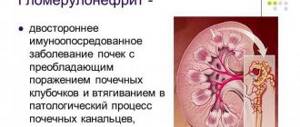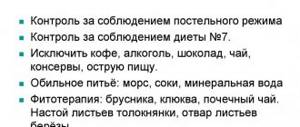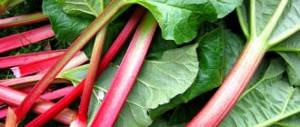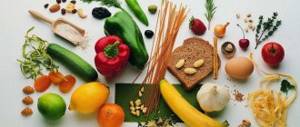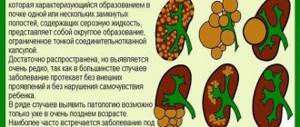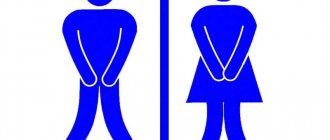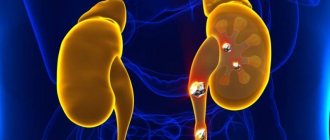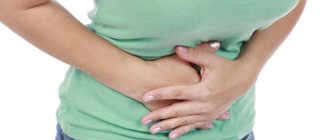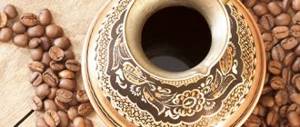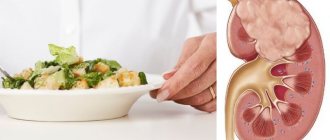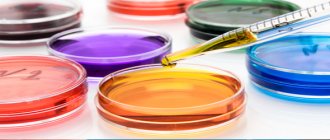Cystitis is a disease characterized by inflammatory processes in the mucous membrane of the bladder, accompanied by a disorder of its functions. The patient suffers from pain in the lower abdomen, frequent and useless trips to the toilet, and discomfort when urinating.
Cystitis is treated with different methods - medications (antiparasitic, hormonal, antibacterial agents), physiotherapeutic procedures (electrophoresis, laser therapy), electrical stimulation, surgical operations. Their effectiveness can be significantly enhanced by proper diet.
One of the causes of the disease is the systematic consumption of food that is dangerous for the patient. Well-thought-out therapeutic nutrition can reduce the manifestation of negative symptoms - intoxication, irritation of the internal surface of the organ, the spread of pathogenic microflora.
A diet for cystitis will help reduce or prevent the appearance of stones in the kidneys and urine ducts that destroy the mucous membrane, and increase the activity of medications.
Diet for cystitis in women and men
The diet for cystitis in women is aimed at saturating the body with vitamins and microelements, which it loses during the inflammatory process. This activates the body's defenses and promotes a speedy recovery from cystitis. Nutrition for cystitis and pyelonephritis in women and men helps solve the following issues:
- manifestations of intoxication are reduced - it is necessary to arrange several vegetarian days, increase the amount of fluid you drink, and stage-by-stage nutrition;
- the proliferation of microbes stops - for this you need to take berries rich in hippuric and benzoic acid;
- irritation of the mucous membrane of the bladder is relieved - for this, all food products that can cause irritation of the bladder are eliminated;
- the level of crystal loss decreases - depending on the acidity of the urine, the diet can prevent the loss of stones of a certain composition;
- the sanitizing ability of antibacterial drugs increases - when urine is alkalized, for example, a medicine for cystitis based on sulfonamide drugs increases its activity.
Drinking water
It is important to drink enough water for recovery. You need to drink at least two liters per day. As your body temperature rises, the volume of water you drink per day can be increased by another half liter. You can drink not water, but compote, berry juice, juices (except tomato). We recommend adding berries that have a diuretic effect to the compote, such as:
- rose hip;
- cranberry;
- cowberry;
- currant.
Thanks to the diuretic effect of these berries, it will be possible to quickly remove pathogenic microorganisms from the body. Rosehip is the main berry for cystitis, because it has an excellent antibacterial effect.
If you have cystitis, you should avoid:
- alcoholic drinks;
- coffee;
- fresh orange juice;
- strong tea;
- soda.
List of recommended drinks:
- weak tea without sugar;
- non-carbonated calcium chloride mineral water;
- fruit drinks;
- herbal teas based on bearberry and corn silk;
- kidney tea;
- compotes with cranberries or lingonberries;
- juices (the main thing is not sour).
Sample menu for the day
When compiling a daily menu, it is necessary to include as much as possible foods that are rich in nutrients and, at the same time, do not cause an exacerbation of bladder inflammation.
Breakfast can consist of porridge with dried fruits, flavored with butter, casserole, vegetable puree, boiled eggs or low-fat cottage cheese. As drinks, you can offer drinking yogurt or green tea. A light afternoon snack consists of kefir, fermented baked milk or yogurt with fruit, cottage cheese, nuts, and bread.
Diet lunch includes 3 dishes:
- vegetable soups: cabbage soup, borscht, krupenik, beetroot soup;
- main courses: meatballs, cutlets, steamed fish, boiled chicken or turkey. The side dish can be potato or vegetable puree, pasta, porridge, vegetable stew;
- for dessert you are allowed to eat a baked apple, berry jelly or cottage cheese soufflé, as well as fresh berries and fruits;
- The choice of drinks is quite rich: herbal tea, compote, jelly, juice, berry juice.
For dinner, stewed vegetables, vinaigrette, cabbage rolls, and meatballs are prepared. Baked fruit for dessert and herbal infusion. At night it is recommended to drink 250 ml of kefir or yogurt.
Approximate daily menu for cystitis:
- Breakfast: Rice porridge with butter. Green tea.
- Afternoon snack: Baked pear. Kefir.
- Lunch: Cereal soup, stewed vegetables with boiled chicken breast, whole grain bread, compote.
- Second afternoon snack: Yogurt with softened dried apricots.
- Dinner: Steamed omelette. Baked apple and herbal tea.
- A glass of fermented baked milk before bed.
Warning! If you have additional diseases, you need to take them into account when creating a menu so as not to harm the general condition of the body. It is also important to take into account the age of the patient, so you cannot choose a diet on your own; it must be prescribed by a doctor.
Sample daily menu
For adults
The diet menu for cystitis should consist mainly of fruits and vegetables. Let's look at an approximate daily menu:
- for breakfast, preference is given to vegetable puree, boiled eggs, porridge cooked in milk, cottage cheese and compotes;
- for lunch - vegetable soup with added cereal or lean borscht, steamed or baked cutlets, stewed or baked vegetables;
- afternoon snack - kefir, allowed fruits and boiled potatoes;
- dinner - buckwheat, cottage cheese casserole or vinaigrette.
Menu for children
Cystitis is often diagnosed in children, since the structure of the urinary tract in a child creates a favorable area for the development of microorganisms in the urinary cavity. The diet for cystitis in children suggests the following menu:
- breakfast - cereals, yogurt, egg, freshly squeezed juice (not sour);
- lunch - soup, boiled vegetables, compote or kefir;
- afternoon snack - fruits and compote;
- dinner - cereals cooked in water, vegetables, tea.
For pregnant
It is important for pregnant women to follow the menu prescribed by the doctor, because not only acute cystitis, but also the woman’s position requires a balanced and healthy diet. Sample menu:
- breakfast - fruit puree, boiled cereal, vegetables, freshly squeezed juice;
- lunch - fruits and cottage cheese, stewed vegetables, low-fat and lightly salted cheese;
- afternoon snack - fruit and tea;
- dinner - fruit salad, kefir.
What not to eat if you have cystitis
If you have cystitis in women, you should not eat foods that will irritate the mucous membrane of the bladder. Among vegetables and fruits there are foods that cause undesirable reactions from the urinary system. Diet for cystitis in women excludes the following foods: bananas, avocados, plums, apples. It is not recommended to drink juices, as well as compotes that contain these dried fruits. You can't eat legumes and asparagus. Tomatoes are also prohibited for cystitis.
Foods not recommended for cystitis are sweet dairy products. Among fermented milk products, you should not eat too much cottage cheese or milk. If you have acute cystitis, you should not eat sweet or salty foods. These primarily include food industry products - sweets, pastries, honey, cakes. It is better to replace them with natural sweets - acute cystitis allows quince, apricots and other fruits. Prohibited products also contain a sweetener.
The list of things you shouldn’t eat if you have cystitis continues with citrus fruits. If you have pyelonephritis, you should not eat too much orange, tangerine, or grapefruit; you should also forget about juices that contain citrus fruits. It is best to avoid tea with lemon, as it can provoke an unwanted reaction. Any foods with spices are prohibited, and fast food is also undesirable. If you have cystitis, you should not eat or drink foods that contain a lot of preservatives - carbonated drinks, crackers, chips, nuts.
- What is the correct diet for oxalate kidney stones?
Diets
Following the rules of a special diet can significantly increase the effectiveness of taking medications and speed up the recovery process. Healthy food will help prevent the growth of bacteria, reduce intoxication, prevent constipation and avoid unnecessary irritation of the bladder mucosa.
Urine is 99% water, so it is very important to drink an increased amount of drinks during an exacerbation. Particular attention should be paid to decoctions that have antiseptic properties.
Basic dietary principles:
- diuretics;
- low-salt;
- low protein;
- fat-free.
Diet No. 7 corresponds to these principles.
For women
With cystitis, women experience very powerful pain. To alleviate suffering, it is necessary to immediately begin comprehensive treatment.
What to do first:
- bed rest;
- warming up the perineum;
- taking medications;
- refusal of harmful products;
- compliance with the dietary menu;
- drinking plenty of fluids.
If the sick woman begins to follow these recommendations and eat right, her condition will quickly improve. It is necessary to immediately exclude foods that are irritants from the diet. It is very important to prevent their negative effects on the genitourinary system. This is the most important rule of the diet for female cystitis.
Approximate two-day diet for women:
- First breakfast: salad of sour cream and boiled beets or low-fat cottage cheese with a little sugar, bread, unsweetened tea.
- Second breakfast: steamed omelette or viscous buckwheat porridge, pumpkin juice.
- Lunch: borscht without meat and sauteed (vegetarian) with sour cream or pureed vegetable soup, boiled chicken with buckwheat, dried fruit compote or fruit drink.
- Rice casserole with raisins or steamed cabbage rolls, jelly.
If you cannot refuse onions, then you must first boil them and then lightly fry them. Grated carrots with the addition of honey will help lift your spirits as a dessert.
For men
The necessary methods of therapy are prescribed by the attending physician after diagnosis. In addition to taking medications, drink plenty of fluids and eat properly. The diet should be gentle, help reduce the inflammatory process and alleviate the general condition of the patient.
The diet should include:
- drinking enough;
- products with increased diuretic effect;
- bran and whole grain bread;
- low-fat dairy products.
At elevated temperatures, it is necessary to maintain bed rest, take medications on time and stop smoking.
Limit or completely abandon:
- alcohol;
- fast food;
- pickles;
- fried and fatty foods.
For men, food should be higher in calories than for women. This is due to high energy consumption in the male body.
Sample list of dishes for two days:
- Breakfast: two boiled eggs (poached) or low-fat, non-acidic cottage cheese, cheese, butter, bread, honey, tea with milk.
- Second breakfast: boiled chicken, veal or oatmeal, rye bread, juice from non-acidic fruits and berries.
- Lunch: vegetarian cabbage soup or puree soup made from potatoes, carrots and different varieties of cabbage, steamed fish, fish or meat meatballs with buckwheat or stewed vegetables, bread, compote.
- Afternoon snack: jelly with crackers or unsalted low-fat cookies.
- Dinner: rice or cottage cheese casserole, tea with honey.
Fish and meat can be baked in the oven. In order not to feel hungry, split meals are allowed. Do not consume very cold drinks or food.
Reviews and results
This therapeutic food can be called monotonous and tasteless, since all seasonings, sauces are excluded and salt is limited. Due to this, it is difficult to withstand it for a long time, as noted in the reviews. However, everyone notes a rapid improvement in acute cystitis (along with drug treatment). Conversely, when trying to expand the diet ahead of time, patients developed pain in the lower abdomen and dysuric disorders returned.
- “... Previously, there were often relapses of chronic cystitis, but now there has been nothing for a year, since I follow a diet, do not get hypothermic, and I am prescribed Monurel twice a year for 2 weeks. The hardest part of all this is to follow a diet, but it is very important. It has been tested more than once - after feasts with alcohol and spicy dishes, I feel worse”;
- “... I have been suffering from cystitis since pregnancy. When I kept to the diet and didn’t freeze, everything was fine. But if you get a little too cold or swim in the sea, everything starts all over again. She was treated in combination (antibiotics, diet). I liked the drug Uroprofit and took it for months. Plus diet helps a lot for prevention. It’s not difficult for me to do it, because due to gastritis and constant heartburn I didn’t eat anything spicy or fried”;
- “... I cooked it for myself when I had cystitis and the whole family ate it - they just added salt and pepper to taste. This way I didn't have to cook separately and it wasn't difficult. I liked casseroles with cottage cheese, baked apples, zucchini and chicken casseroles. It’s a shame to say, but due to illness, I expanded my knowledge of cooking and added new dishes to it.”
Signs and symptoms
The main symptoms of acute cystitis:
- severe pain, pain when urinating at the end;
- darkening and cloudiness of urine;
- frequent urination;
- mucus and blood are visible in the urine;
- after urinating, the woman feels as if there is some residual fluid in the bladder, but continuing the process gives nothing but pain and stinging;
- the temperature often rises to 38 degrees or more;
- problems with sleep appear, weakness, nervousness develop, and general condition worsens;
- tests show the development of leukocytosis and the presence of bacteria.
Important! In the chronic form of the inflammatory process, exacerbations are observed, in most cases, with hypothermia. To prevent relapses, it is important to strengthen the immune system, carefully monitor hygiene, dress appropriately for the weather, avoid drafts, and ensure that your feet do not get wet.
Nutrition during exacerbation of the disease
Acute cystitis is an inflammatory-purulent process localized in the tissues and mucous membranes of the bladder.
The disease is characterized by discomfort, pain and burning that accompany urination. Patients suffer from frequent urge to go to the toilet, but urine is released in small portions.
- “Diet table 7 - nutrition for kidney disease, what you can and cannot eat, menu”
An exacerbation of cystitis usually lasts no more than a week, during which there is an elevated body temperature (37.1-37.8 degrees) and severe discomfort in the lower abdomen.
The main goals of the diet are to prevent bladder irritation and flush the urinary canals. After the patient’s condition has stabilized, he is recommended to adhere to the following diet:
- Eliminate processed meats and fish from your diet, replacing them with unsalted cheese, cottage cheese and fermented milk products.
- Consume 1-2 teaspoons of natural bee honey to reduce the activity of the inflammatory process in the acute phase.
- Saturate your own menu with foods that have a pronounced diuretic effect. These include representatives of melons such as melons and watermelons, as well as carrots, cucumbers and other fresh vegetables.
- Use herbal infusions. You can use ready-made mixtures designed to improve the functioning of the renal system, or you can prepare your own mixtures consisting of lingonberry leaves, corn silk, bearberry and other ingredients.
The patient must drink sufficient amounts of fluid (at least 1.6-2.6 liters during one day). To saturate the body with beneficial microelements, mineral water (calcium chloride), compotes from fresh and dry fruits, as well as all kinds of fruit drinks and juices are excellent (for example, pumpkin juice has a pronounced diuretic effect and has a moderate antibacterial effect).
Tomato juice is an exception, so people suffering from cystitis are advised to completely exclude it from their diet.
Features of nutrition for radiation cystitis
Radiation cystitis is a complication caused by radiation for oncological problems in the abdominal cavity. Radiation therapy of an ionizing nature provokes changes in the walls of blood vessels and the epithelium of the inner surface of the organ, accompanied by a disorder of its functions. The nutrition of the mucous membrane gradually deteriorates, ulcers and scars appear on its surface.
For radiation cystitis, the emphasis in the diet should be on:
- Kidney teas (those mentioned in the article);
- Freshly squeezed vegetable juices;
- Wild berries – cranberries, blueberries, lingonberries;
- Mineral water, non-acidic warm compotes and other diuretic drinks;
- Watermelons, melons and other ripe fruits;
- Fermented milk products;
- Cranberry juice sweetened with fresh apple juice.
The norm of vitamin C in this disease is increased - up to 500 g per day. Natural ascorbic acid, which cranberries are rich in, has bacteriostatic capabilities.
In addition, it has other advantages: benzoic and hypuric acids, which accelerate the healing of the mucous membrane. Cranberry processing products can change the composition of urine, making it unsuitable for the proliferation of pathogenic microflora. The berry is also useful for preventing inflammation of the genitourinary system. Lingonberries are considered an equally valuable natural medicine.
The “black” list for such severe forms of cystitis included:
- Salt;
- Strong broths rich in protein;
- Protein-rich foods such as cheese or beans;
- Dishes high in starch - pasta, potatoes, baked goods made from white flour;
- Confectionery;
- Fatty and spicy foods, smoked foods, spices, canned food;
- Products with excess essential substances;
- Anything that irritates the urinary system;
- Alcoholic drinks.
Any damage to the internal surface of the organ leads to the activation of dysuric properties: urinary incontinence, frequent and painful urge to go to the toilet.
Fully or partially limited products
The table provides for limiting salt and sugar. For cystitis and urethritis , you should exclude all foods and dishes that have an irritating effect on the mucous membrane: hot seasonings, sauces (mayonnaise, ketchup), horseradish, mustard, smoked, salted and pickled foods. Concentrated broths (fish, mushroom, meat, legumes) rich in extractive substances are not allowed.
Pork, duck and goose meat, sausages, smoked meats, and canned food are excluded from meat products. Fried foods should not be consumed. Fatty fish, canned fish and smoked fish are also prohibited.
Horseradish, radishes, celery, onions, garlic, radishes, sorrel and spinach (sources of oxalic acid), and sour varieties of fruits and vegetables (tomatoes and juice from them) are excluded from vegetables. Products with artificial colors and preservatives are not allowed in the diet. Strong coffee and tea, sour juices, sweet carbonated water and alcohol should be excluded from drinks.
Table of prohibited products
| Proteins, g | Fats, g | Carbohydrates, g | Calories, kcal | |
Vegetables and greens | ||||
| spicy vegetables | 2,8 | 0,5 | 5,3 | 36 |
| vegetables legumes | 9,1 | 1,6 | 27,0 | 168 |
| canned vegetables | 1,5 | 0,2 | 5,5 | 30 |
| sauerkraut | 1,8 | 0,1 | 4,4 | 19 |
| cauliflower | 2,5 | 0,3 | 5,4 | 30 |
| green onion | 1,3 | 0,0 | 4,6 | 19 |
| bulb onions | 1,4 | 0,0 | 10,4 | 41 |
| canned cucumbers | 2,8 | 0,0 | 1,3 | 16 |
| pickles | 0,8 | 0,1 | 1,7 | 11 |
| radish | 1,2 | 0,1 | 3,4 | 19 |
| white radish | 1,4 | 0,0 | 4,1 | 21 |
| turnip | 1,5 | 0,1 | 6,2 | 30 |
| celery | 0,9 | 0,1 | 2,1 | 12 |
| asparagus | 1,9 | 0,1 | 3,1 | 20 |
| tomatoes | 0,6 | 0,2 | 4,2 | 20 |
| canned tomatoes | 1,1 | 0,1 | 3,5 | 20 |
| horseradish | 3,2 | 0,4 | 10,5 | 56 |
| garlic | 6,5 | 0,5 | 29,9 | 143 |
| spinach | 2,9 | 0,3 | 2,0 | 22 |
| sorrel | 1,5 | 0,3 | 2,9 | 19 |
Fruits | ||||
| apricots | 0,9 | 0,1 | 10,8 | 41 |
| avocado | 2,0 | 20,0 | 7,4 | 208 |
| oranges | 0,9 | 0,2 | 8,1 | 36 |
| bananas | 1,5 | 0,2 | 21,8 | 95 |
| lime | 0,9 | 0,1 | 3,0 | 16 |
| lemons | 0,9 | 0,1 | 3,0 | 16 |
| tangerines | 0,8 | 0,2 | 7,5 | 33 |
| plums | 0,8 | 0,3 | 9,6 | 42 |
Berries | ||||
| grape | 0,6 | 0,2 | 16,8 | 65 |
| strawberry | 0,8 | 0,4 | 7,5 | 41 |
Mushrooms | ||||
| marinated mushrooms | 2,2 | 0,4 | 0,0 | 20 |
Confectionery | ||||
| jam | 0,3 | 0,2 | 63,0 | 263 |
Chocolate | ||||
| chocolate | 5,4 | 35,3 | 56,5 | 544 |
Raw materials and seasonings | ||||
| mustard | 5,7 | 6,4 | 22,0 | 162 |
| ginger | 1,8 | 0,8 | 15,8 | 80 |
| mayonnaise | 2,4 | 67,0 | 3,9 | 627 |
| ground black pepper | 10,4 | 3,3 | 38,7 | 251 |
| sugar | 0,0 | 0,0 | 99,7 | 398 |
| tomato sauce | 1,7 | 7,8 | 4,5 | 80 |
| vinegar | 0,0 | 0,0 | 5,0 | 20 |
Meat products | ||||
| pork | 16,0 | 21,6 | 0,0 | 259 |
Bird | ||||
| smoked chicken | 27,5 | 8,2 | 0,0 | 184 |
| duck | 16,5 | 61,2 | 0,0 | 346 |
| smoked duck | 19,0 | 28,4 | 0,0 | 337 |
| goose | 16,1 | 33,3 | 0,0 | 364 |
Fish and seafood | ||||
| dried fish | 17,5 | 4,6 | 0,0 | 139 |
| smoked fish | 26,8 | 9,9 | 0,0 | 196 |
| black caviar | 28,0 | 9,7 | 0,0 | 203 |
| salmon caviar granular | 32,0 | 15,0 | 0,0 | 263 |
| canned fish | 17,5 | 2,0 | 0,0 | 88 |
Oils and fats | ||||
| animal fat | 0,0 | 99,7 | 0,0 | 897 |
| cooking fat | 0,0 | 99,7 | 0,0 | 897 |
Non-alcoholic drinks | ||||
| cola | 0,0 | 0,0 | 10,4 | 42 |
| coffee | 0,2 | 0,0 | 0,3 | 2 |
| lemonade | 0,0 | 0,0 | 6,4 | 26 |
| Pepsi | 0,0 | 0,0 | 8,7 | 38 |
| sprite | 0,1 | 0,0 | 7,0 | 29 |
| black tea | 20,0 | 5,1 | 6,9 | 152 |
Juices and compotes | ||||
| Orange juice | 0,9 | 0,2 | 8,1 | 36 |
| tomato juice | 1,1 | 0,2 | 3,8 | 21 |
| * data is per 100 g of product |
What to exclude
A diet for cystitis requires you to exclude the consumption of food that can provoke a deterioration in health, slow down the filtration processes in the kidneys, and disrupt urination. In the case of an acute form of the disease, prohibited foods are removed from the diet of a sick person during treatment, and in case of a chronic disease, the restrictions are long-term. The main restrictions relate to salt, which provokes fluid retention and therefore interferes with the cleansing of the urinary ducts from bacterial flora.
The list of prohibited products includes:
Fatty food
- Smoked meats, pickles and marinades due to their high salt content.
- Strong meat, mushroom, fish broths due to the increased concentration of extractive substances.
- Fried foods because they require too much valuable energy to digest.
- Fatty foods, which impede the digestive system and complicate the kidney filtration process.
- Milk porridges are not recommended due to their high lactose content.
- Spices, spices, and spicy foods provoke increased pain due to changes in acid levels of urine.
- Vegetables for cystitis will be prohibited: legumes, cabbage, tomatoes, radishes, radishes, sorrel, as they contribute to irritation of the mucous membranes.
- Acidic fruits - oranges, lemons - are rich in vitamins, but when the bladder becomes inflamed, they change the acidity of the urine, causing pain when urinating.
During the treatment of acute cystitis, you should not drink alcohol. Firstly, alcohol reduces the effectiveness of antibiotics, and secondly, it provokes fluid retention and interferes with the cleansing of the urinary tract from infection. Products with a high sugar content are also included in the list of foods prohibited by the diet, so baked goods, confectionery, cakes, and pastries should be removed from the diet.
Recommended topic:
Antibiotics for cystitis
What diet for cystitis?
Let’s summarize all the above recommendations for patients with cystitis and answer the question: “What is the diet for cystitis?”
- A diet that helps with cystitis is diuretic and anti-inflammatory in nature with the consumption of large amounts of fluid.
- The diet should be natural, excluding products containing GMOs, dyes and preservatives from entering the patient’s diet.
- Diet for cystitis contains a small amount of salt; in some cases, it is completely excluded from the patient’s diet.
- In most cases, food should be freshly prepared.
- Preference is given to boiled, stewed or steamed food.
- It is necessary to exclude heavy foods from the diet. In the first half of the day you need to eat more high-calorie foods, and in the second half - less high-calorie foods.
- It is beneficial to consume fermented milk products.
- For cystitis, spicy and sour foods, as well as pickles and marinades, are prohibited.
- The diet for cystitis excludes the consumption of foods containing sugar and its substitutes.
- Therapeutic nutrition for cystitis is characterized by a diet containing a small amount of protein products.
Products for cystitis and urethritis
Urethritis is a disease that affects the urinary canal. It is accompanied by symptoms in the form of pain when urinating. Considering that urethritis and chronic cystitis are related diseases, they can be observed in parallel. Cystitis is sometimes caused by a raw food diet, so experts place restrictions on eating foods exclusively in raw form. Doctors prescribe a diet that is diuretic in nature in order to quickly remove bacteria from the urinary cavity. In addition, the diet should help relieve the workload of the kidneys, therefore it is important to eat food that is easily digestible, natural and does not contain preservatives. Restrictions on food intake during urethritis will be exactly the same as during the treatment of acute cystitis.
What should you not eat if you have cystitis?
People suffering from this disease often ask the following question: “What can’t you eat if you have cystitis?” There is a list of foods and drinks that need to be completely excluded from patients' diets.
- Oxalates in urine diet dos and don'ts
Should be removed from use:
- Salty, spicy foods, fried foods and smoked foods.
- Sour and canned foods, pickles and marinades, as well as those types of products that were made with the help of dyes and preservatives.
- Coffee, tea, sweet carbonated drinks.
- Food products, as well as medicines and vitamin complexes containing sugar and saccharin.
- Spicy foods and spices - pepper and other seasonings, onions, garlic, horseradish, radishes, sorrel, parsley, radishes and others.
- Baked goods and pasta, that is, products made from refined flour.
- Alcohol, beer and energy drinks.
- Chocolate and cocoa.
- Tomatoes and products that contain tomatoes.
- Milk, sour cream, cheese and sweet yogurt.
- Oranges, lemons and other citrus fruits, as well as juices made from them.
- Vinegar, soy sauce and mayonnaise.
- Nuts and raisins.
- Bananas, sour apples and sour apple juice, cherries, peaches, plums, avocados.
- Fatty meat, fish and lard.
- Food products containing GMOs.
Other instructions
Considering that each person’s body is individual, it will react differently to the same food products. Therefore, it is important to notice how the body reacts to a particular product, and if it is not suitable, do not eat it if you have cystitis. These observations will allow you to better know your body and create the most useful and safe individual menu containing vitamins and necessary substances.
It is important to know what not to do if you have cystitis. The first is to smoke, the second is to drink alcoholic beverages, since these substances have an irritating effect on the mucous membrane of the urinary cavity. In addition, alcoholic drinks reduce the effect of antibiotics. You need to drink still water and give preference to mineral water, and also use a variety of herbal decoctions, for example, St. John's wort or chamomile. A diet for bladder inflammation in women should be started on the second day after the development of inflammatory processes. On the first day, it is important to completely stop eating so that the body can remove intoxication.
Authorized Products
Soups are prepared with vegetable broth. Cabbage soup made from sour cabbage, vegetable and cereal soups are allowed. They are seasoned with sour cream or butter, but any seasonings and herbs are excluded.
Ripe sweet fruits and berries, purees and jelly made from them, jellies and compotes without sugar are allowed. Honey is allowed, and for drinks - rosehip decoction, juices from sweet fruits, weak coffee and green tea, decoctions of cranberries, lingonberries, fruit drinks from these berries.
Table of permitted products
| Proteins, g | Fats, g | Carbohydrates, g | Calories, kcal | |
Vegetables and greens | ||||
| zucchini | 0,6 | 0,3 | 4,6 | 24 |
| carrot | 1,3 | 0,1 | 6,9 | 32 |
| beet | 1,5 | 0,1 | 8,8 | 40 |
| pumpkin | 1,3 | 0,3 | 7,7 | 28 |
Fruits | ||||
| watermelon | 0,6 | 0,1 | 5,8 | 25 |
| pears | 0,4 | 0,3 | 10,9 | 42 |
| melon | 0,6 | 0,3 | 7,4 | 33 |
| figs | 0,7 | 0,2 | 13,7 | 49 |
| apples | 0,4 | 0,4 | 9,8 | 47 |
Berries | ||||
| cowberry | 0,7 | 0,5 | 9,6 | 43 |
| cranberry | 0,5 | 0,0 | 6,8 | 26 |
Nuts and dried fruits | ||||
| raisin | 2,9 | 0,6 | 66,0 | 264 |
| dried apricots | 5,2 | 0,3 | 51,0 | 215 |
| dried apricots | 5,0 | 0,4 | 50,6 | 213 |
| dates | 2,5 | 0,5 | 69,2 | 274 |
Cereals and porridges | ||||
| buckwheat (kernel) | 12,6 | 3,3 | 62,1 | 313 |
| cereals | 11,9 | 7,2 | 69,3 | 366 |
| corn grits | 8,3 | 1,2 | 75,0 | 337 |
| pearl barley | 9,3 | 1,1 | 73,7 | 320 |
| millet cereal | 11,5 | 3,3 | 69,3 | 348 |
| white rice | 6,7 | 0,7 | 78,9 | 344 |
Confectionery | ||||
| jelly | 2,7 | 0,0 | 17,9 | 79 |
Raw materials and seasonings | ||||
| honey | 0,8 | 0,0 | 81,5 | 329 |
| sugar | 0,0 | 0,0 | 99,7 | 398 |
| sour cream sauce | 1,9 | 5,7 | 5,2 | 78 |
Dairy | ||||
| milk | 3,2 | 3,6 | 4,8 | 64 |
| kefir | 3,4 | 2,0 | 4,7 | 51 |
| cream | 2,8 | 20,0 | 3,7 | 205 |
| sour cream | 2,8 | 20,0 | 3,2 | 206 |
| curdled milk | 2,9 | 2,5 | 4,1 | 53 |
| acidophilus | 2,8 | 3,2 | 3,8 | 57 |
| yogurt | 4,3 | 2,0 | 6,2 | 60 |
Cheeses and cottage cheese | ||||
| cottage cheese | 17,2 | 5,0 | 1,8 | 121 |
Meat products | ||||
| boiled beef | 25,8 | 16,8 | 0,0 | 254 |
| boiled veal | 30,7 | 0,9 | 0,0 | 131 |
| rabbit | 21,0 | 8,0 | 0,0 | 156 |
Bird | ||||
| boiled chicken | 25,2 | 7,4 | 0,0 | 170 |
| turkey | 19,2 | 0,7 | 0,0 | 84 |
Eggs | ||||
| chicken eggs | 12,7 | 10,9 | 0,7 | 157 |
Oils and fats | ||||
| peasant unsalted butter | 1,0 | 72,5 | 1,4 | 662 |
| corn oil | 0,0 | 99,9 | 0,0 | 899 |
| olive oil | 0,0 | 99,8 | 0,0 | 898 |
| sunflower oil | 0,0 | 99,9 | 0,0 | 899 |
| ghee | 0,2 | 99,0 | 0,0 | 892 |
Non-alcoholic drinks | ||||
| mineral water | 0,0 | 0,0 | 0,0 | — |
| lingonberry juice | 0,1 | 0,0 | 10,7 | 41 |
| green tea | 0,0 | 0,0 | 0,0 | — |
Juices and compotes | ||||
| apricot juice | 0,9 | 0,1 | 9,0 | 38 |
| carrot juice | 1,1 | 0,1 | 6,4 | 28 |
| pumpkin juice | 0,0 | 0,0 | 9,0 | 38 |
| * data is per 100 g of product |
Forms
This disease can have different causes. There are several types of cystitis:
- Infectious.
- Chemical.
- Allergic.
- Post-radiation and other forms.
Cystitis can affect representatives of the fair sex of any age category. If a woman has this disease in her body, this means that she needs to adhere to special nutritional recommendations. In no case should you take your diet for cystitis lightly, as it plays an important role in the healing process.
What foods can you eat?
Many women, faced with the disease, ask the question - what can you eat if you have cystitis?
Despite the large number of prohibited foods, there are some that will help heal the bladder. By eating zucchini, cucumbers, watermelon and melon, the patient will be able to flush out the infection.
Cranberry has a pronounced healing effect against inflammation. The special components included in the composition envelop the bladder, which prevents the attachment of bacteria. Cranberry juice for cystitis should be drunk without sugar. If, in addition to cystitis, there are diseases of the stomach and liver, then you should abstain from cranberries.
Fruits containing fiber will relieve constipation. It is important to choose sweet varieties of apples, pears and grapes.
You can consume dairy and fermented milk products without restrictions. Do not eat salty cheeses, glazed cheeses, or processed cheese.
Don't get carried away with seasonings when cooking. If possible, avoid them completely, as they can irritate the bladder.
Suitable drinks include infusions of diuretic herbs, compotes, green tea, and still mineral water.
Basic principles of nutrition
The composition of the diet for cystitis is not very different in chronic and acute forms.
All food should have a soft consistency (puree soup, boiled porridge, etc.) and be slightly warmed up. Such measures will speed up the process of its absorption and reduce the load on the kidneys and bladder.
Meals should be quite frequent (4-5 times a day), but the volume of each serving should not exceed 200 grams.
On the first day of cystitis, it is better to generally abstain from any food, giving preference only to drinking liquid
When cooking, it is better to avoid the use of broths (including mushroom ones) and the frying process, replacing it with stewing, boiling and steaming.
In the first 2-3 days, you should adhere to more strict dietary rules, but subsequently you can gradually add some variety to the daily menu (fermented milk products, meat, unsalted cheese, etc.). People with a particularly sensitive bladder are recommended to keep a food diary, where they should write down all the foods they eat and note after which of them the symptoms of cystitis begin to intensify.
